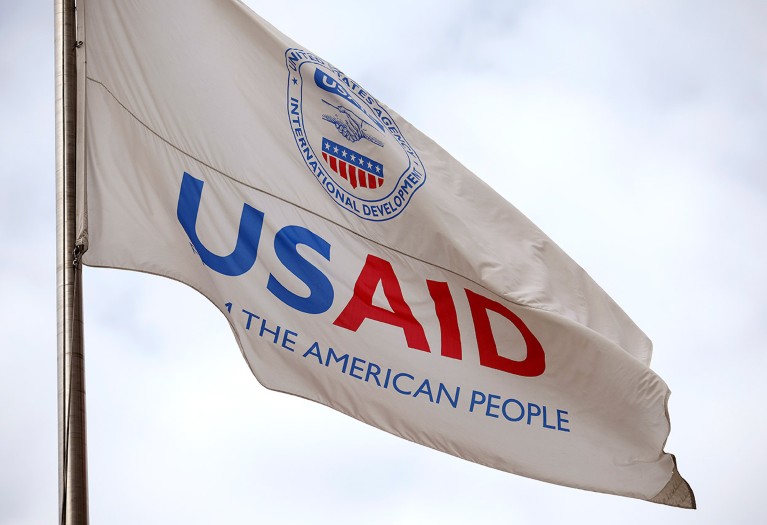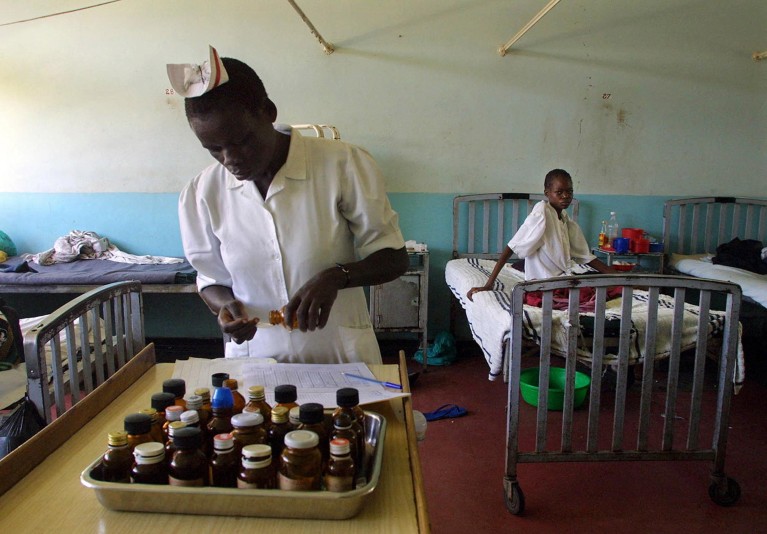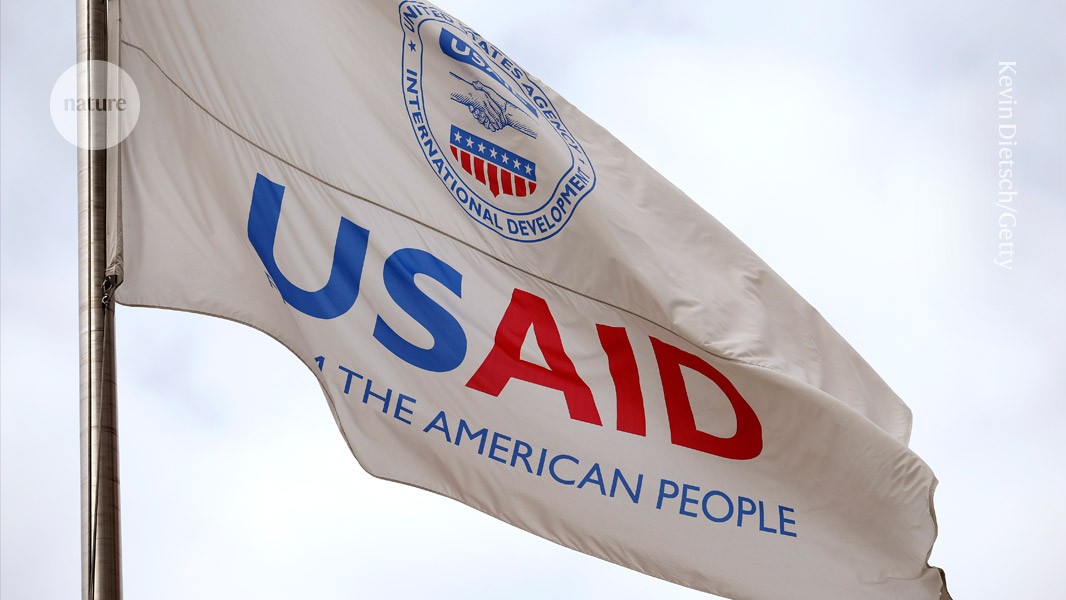
USAID programmes fund global efforts to tackle diseases such as HIV and malaria.Credit: Kevin Dietsch/Getty
Franklin Wanyama’s world was thrown into turmoil last month, when US President Donald Trump abruptly announced a freeze on foreign aid. Wanyama, a 29-year-old in Nairobi who was born HIV-positive, is one of millions of people worldwide whose life-saving treatment is funded by a US foreign aid programme.
The HIV clinic Wanyama visits has managed to continue delivering medications to its patients — although many clinics aren’t, say researchers. But drug supplies are being rationed.
Exclusive: how NSF is scouring research grants for violations of Trump’s orders
“We patients who are HIV positive, we are really panicked,” says Wanyama, whose two children do not carry the virus. He’s lost his job mentoring other HIV-positive people at a US-funded facility and is worried about continued access to medication. “The way things are going, I feel like I have worked so much for nothing.”
As the Trump administration announces drastic policy changes, nowhere is the shock more palpable than in the field of global health. Scientists, medics and health officials say the outsize US influence on battling disease globally will be difficult to quickly replace.
US actions such as the foreign-aid freeze and its pull-out from the World Health Organization in Geneva, Switzerland, will affect billions of dollars in annual funding to battle HIV, malaria and other areas in global health. That will cost lives and threaten global security, say researchers. “It will make the world a less safe place,” says Peter Horby, an infectious-disease researcher at the University of Oxford, UK.
‘High anxiety moment’: Biden’s NIH chief talks Trump 2.0 and the future of US science
Funding freeze
After the Trump administration announced a three-month freeze on foreign aid last month, effects have rippled through the global-health community. Programmes supported by the US Agency for International Development (USAID) — where many employees have been furloughed, according to news reports — fund research, prevention and care for diseases such as HIV and malaria, and work on other global health priorities.
“People haven’t had a chance to get alternative funding because of the abrupt nature of this,” says Salim Abdool Karim, director of the Centre for the AIDS Programme of Research in South Africa, in Durban. The centre was due this week to enrol the first patient in a USAID-funded trial of HIV vaccines, which is now on hold. It is using its reserve funds to continue a trial testing whether a vaginal insertion can prevent HIV transmission.

HIV clinics in Kenya and elsewhere have been affected by the freezes on US aid money.Credit: Pedro Ugarte/AFP via Getty
“It is chaos,” says an HIV researcher in Africa, who runs a clinic that treats thousands of patients and is supported by a US programme called the President’s Emergency Plan for AIDS Relief (PEPFAR), and asked not to be named because of fears of reprisal. More than 20 million people mostly in Africa, including more than a million children and pregnant people, receive antiretroviral drugs through the US$6.5-billion programme.
The clinic has had to suspend staff, which were funded by PEPFAR, and its patients are continuing to receive drugs only because of volunteer efforts. Last night, the clinic received a waiver from the US government that appears to allow them to resume HIV treatment, but uncertainty abounds.
HIV treatments threatened
In South Africa, where the government provides the bulk of HIV care using some PEPFAR funding, the impact of the aid freeze will be minimal, says Abdool Karim. But in many other African countries, “if PEPFAR services stop, the effect will be catastrophic. The governments can’t just step in to meet the shortfall”.
Stopping antiretroviral treatment causes virus levels to rebound, making it possible for a person to transmit HIV — including through pregnancy to unborn children — and facilitating the evolution of drug resistance. “I’m hoping that someone somewhere sees sense and does not continue this abrupt ending of AIDS treatment programmes,” says Abdool Karim.




